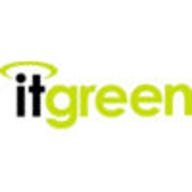Computer Recycling- UK business fraud

Richard A Johnson IT-Green
It's been the bane of my existance since the inception of the WEEE directive in the UK and the Environment Agency continue to fight an uphill battle in trying to prevent it. We're all aware by now of the issue with e-waste export, but what many Companies, schools, charities and even local authorities throwing out their obsolete computers don't realise is that they need to carry out due dilligence as part of the recycling process.
We're not talking about simply checking with companies house though. The Environment Agency issues recycling companies with licenses for the recycling of any form of waste. As many professional certified waste managers will tell you, the law states that when you throw anything out, it is deemed WASTE and as such may only be treated by persons licensed to do so. This similarly applies to computers, particularly business computers, which usually fall outside of producer compliance schemes.
However, even in bleak financial times, numerous traders still see fit to try to operate without relevant licenses. I kid you not, we've been in talks with a very large district council who fell victim of fraud through the use of an unlicensed recycling company. Here's how we found out: The company, which is listed in the top 20 of google UK for key search term: Computer Recycling was used to recycle a local authority's computers. In trying to find out what had happened to said computers, they carried out a check on the Waste carrier's license shown on the website, only to find out it belongs to us. We carried out our own due dilligence, on the grounds that the Environment Agency deems this an Environmental Incident (criminal offence) and behold! the EA confirms said company is not registered as a waste carrier. The company further claims to have numerous, very high profile companies, and having rung many of them, discover that many never used this company's services.
This however, is the tip of the iceberg and chances are hundreds of Companies are falling foul of unlicensed computer recycling companies. However, why should this matter to you? A week ago, the beeb highlighted the export of weee deemed beyond re-use that has ended up in Nigeria. Environment Agency insepectors are currently out there investigating. If the e-waste is recycled by a legitimate company, 9 times out of 10, it'll be properly treated and if some is exported, responsibility falls on the licensed recycler, simply because they're licensed to treat it and bound by licensing agreement with the Environment Agency.
However, if the recycler is unlicensed and the weee is exported, it remains the original holder's responsibility (called duty of care). Asset tags, computer data and screen burn could all lead back to the producer. Prosecution could quite easily ensue. Somewhat embarrasing for the Company trying to recycle their old IT.
Again, this is not the whole issue. Recyclers exporting IT (in a psuedo legitimate manner) are not complying with UK law and could leave you open to Brand damage. Any IT that is being recycled is deemed waste under EU law. The export of this waste to developing countries, even when under the guise of charity donations for use in Schools, has a hideous underlying issue. WEEE is waste, no matter what state it's in. Some companies trade in supposed working equipment, destined for foreign shores, whilst the equipment is actually too obsolete to use or too damaged to be used. Others send out working equipment as charitable donations, but this equipment is leaving our shores in such large quantities, that much of it will never get used or, once obsolete, won't be treated properly or in a safe manner. Here's details about Ghana's e-waste issue: As if that wasn't enough, there's been UK computer waste in China, Pakistan, India and now Nigeria. The next destination: Vietnam- we got our first email about buying waste/ scrap today.